Acupuncture and moxibustion for weight loss
Acupuncture is a traditional herbal medicine method that stimulates certain points of the body, primarily by inserting very fine needles into the skin.
It has been extensively studied for its ability to relieve headaches, neck pain, back pain, knee pain, arthritis, and other pain.
However, there is not much research on how acupuncture can help with other health problems such as weight loss.
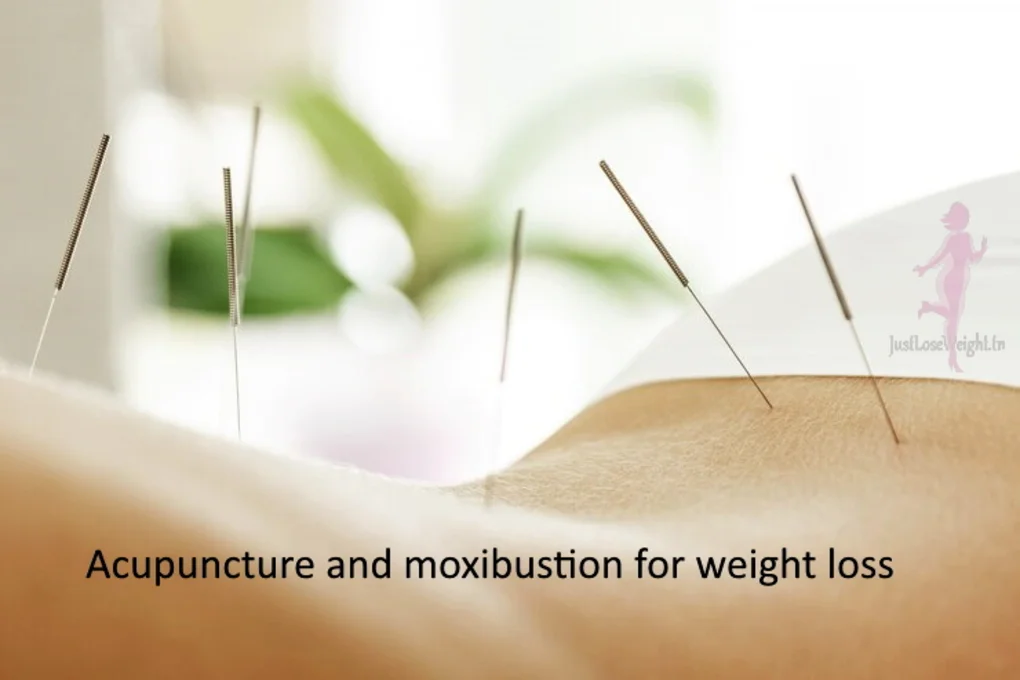
Proponents of acupuncture for weight loss believe that acupuncture can stimulate the flow of energy in the body (Qi) and influence factors that can reverse obesity.
- Increased metabolism
- Anorexia
- Reduce stress
It affects the parts of the brain that feel hungry. According to traditional herbal medicine, weight gain is due to an imbalance in the body.
- According to ancient teachings, this imbalance can be the result of dysfunction from:
- liver
- spleen
- kidney
- Thyroid
- Endocrine system
Therefore, acupuncture for weight loss usually focuses on these areas of the body.
Ear acupuncture and moxibustion for weight loss
The ear is another area where acupuncture can be used for weight loss.
It is believed that food cravings can be controlled by manipulating ear points.
This is similar to the treatment used by acupuncturists to treat smokers and drug addicts.
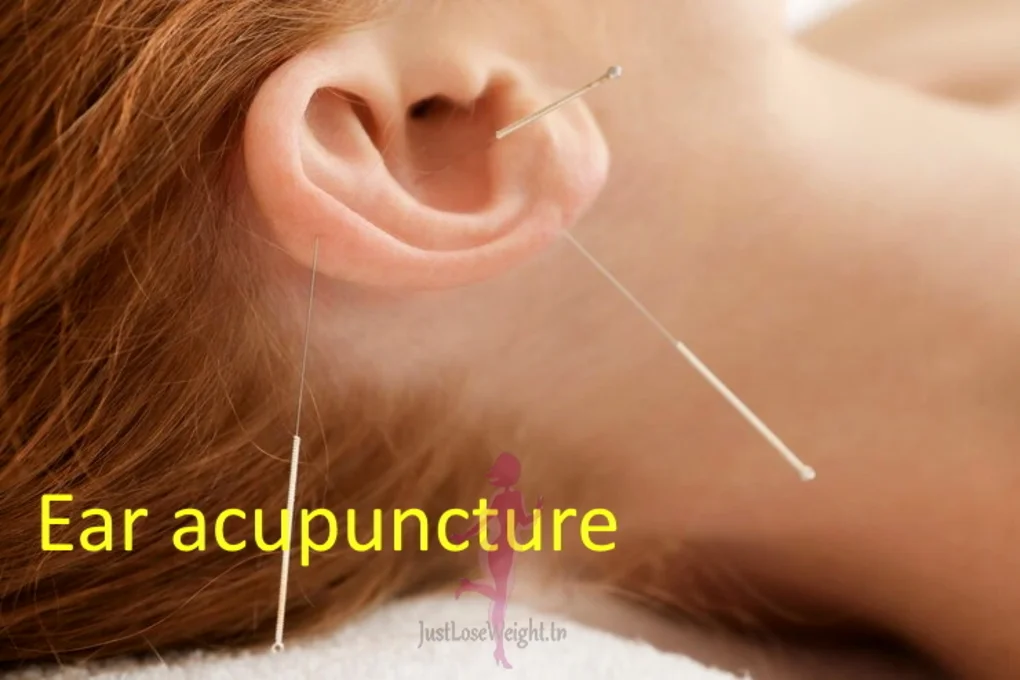
How many sessions do you need?
Different acupuncturists recommend treatments of different lengths and intensities, but if you are trying to reduce 12-20 Kg, it is common to have several sessions a week for 6-8 weeks. ..
As the program progresses, the number of weekly visits may decrease.
The recommended number of visits also depends on the acupuncturist.
Aggressive approach
If you are convinced of the benefits of acupuncture, your positive attitude can help you lose weight.
For example, if you feel that acupuncture is improving your quality of life, that sensation may encourage you to eat a healthier diet and exercise more. And these choices can lead to further weight loss.
Why are there so few studies on acupuncture and moxibustion for weight loss?
If acupuncture can help people lose weight, why aren’t there more studies showing its effectiveness or ineffectiveness?
Some studies suggest that acupuncture is probably effective in weight loss.
However, reviews from credible sources of these surveys found that the results were not definitive due to problems in conducting the surveys.
It may be possible to combine the results of small studies to improve statistical significance.
In this case, acupuncture studies often have too many variables that cannot be combined, including differences.
- Technology
- Number of acupuncture points
- Number of sessions
- Session duration
- Use of placebo
- Fake intervention
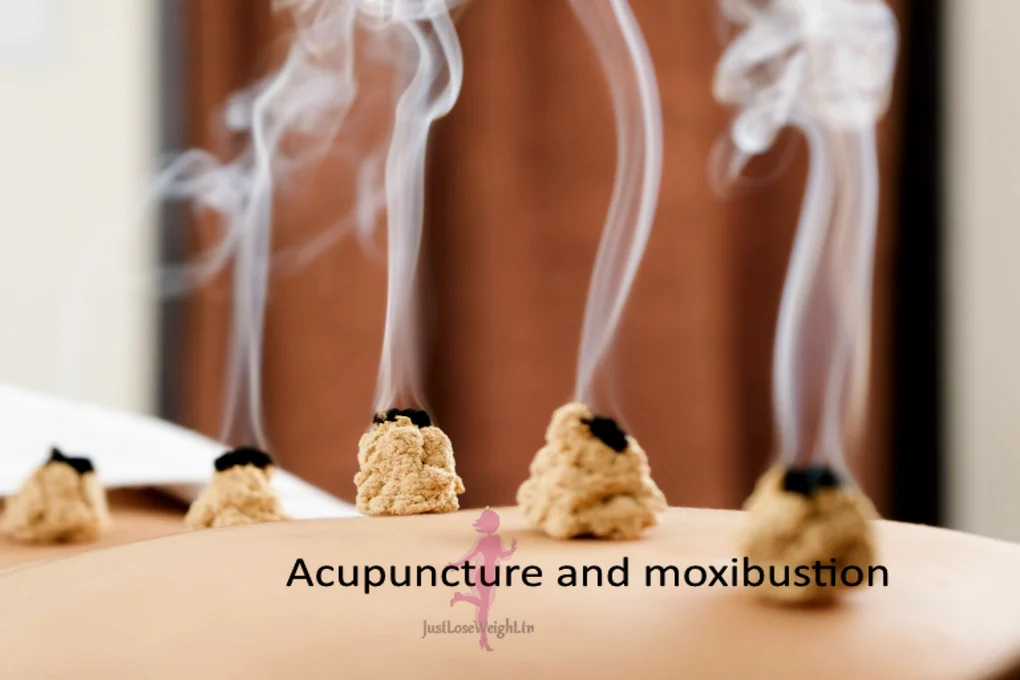
In addition, the results of acupuncture studies are often heavily influenced by participants’ personal beliefs, expectations, and relationships with acupuncture practitioners.
These effects can change the effectiveness of acupuncture itself and tamper with research data. Safety and side effects of acupuncture and moxibustion.
The safety and side effects of acupuncture and moxibustion depend on the training and experience of the acupuncturist and the purity of the needle.
Make sure your acupuncturist is trained and licensed in your country. Otherwise, serious side effects can occur.
- Infection
- Perforated organ
- The collapse of the lungs
- Damage to the central nervous system
finally, Acupuncture can help you lose weight, but research is limited and evidence varies.
Personally, it helps to lose weight, but it’s unclear whether the positive effects are due to a particular acupuncture treatment or a positive attitude that helps to choose a healthier lifestyle.
Currently, there is insufficient reliable evidence that acupuncture can lead to weight loss, but if you are considering trying it:
- Follow your doctor’s advice on the pros and cons.
- Combine treatment with a better diet and exercise (like swimming..).
- Choose an experienced and qualified therapist.
How does acupuncture work?
Acupuncture is a complementary therapy to Chinese medicine (TCM). It started in China and has been popular for over 2500 years.
This is a technique used to balance the flow of energy, also known as vitality, qi, or qi. Qi is thought to flow through the body in a variety of ways.
The goal of acupuncture is to remove energy blockages, balance the flow of energy, and regulate emotional, mental, and physical health.
It involves stimulating specific points along these pathways with thin, strong metal needles that penetrate the skin.
The Acupuncture needles are rounded to prevent them from biting into the skin. Stimulation of these body parts affects nerves, muscles, and connective tissue.
Primarily, Acupuncture is used to treat pain because it is thought to stimulate the body’s natural painkillers. At the same time, it also promotes general well-being and reduces stress.
Acupuncture can also be used to treat a variety of medical conditions, including:
- Allergy
- Anxiety and depression
- Chemotherapy-induced or postoperative nausea and vomiting
- toothache
- Headache and migraine
- High blood pressure
- Insomnia
- childbirth
- Dysmenorrhea and PMS
- Neck pain
- Arthropathy
- Breathing problems
Does acupuncture hurt?
One of the misconceptions about acupuncture is that it is painful. That’s why some people don’t want to try acupuncture.
Some sensations may be felt during the treatment, but the treatment should not be painful.
“Most people receiving treatment feel nothing,” licensed and certified acupuncturists Prajnaparamita, LAc, and Diplom told Healthline.
“Usually, pain can be described as a feeling of qi. It can be heavy, painful, or elastic, but they are all positive reactions.”
This can vary based on tolerance to pain and general susceptibility. Sometimes the first acupuncture is more painful than the next.
This may be due to the fact that certain energy points in the body are active for the first time.
Symptoms may get a little worse before they improve. “Pain isn’t a bad thing, but it doesn’t have to be permanent.
It usually wears out,” says Choudhury. “If the patient continues to feel it, I remove the needle.”
What is the effect of acupuncture and moxibustion?
Experience is individual, but acupuncture usually does not cause discomfort or pain.
“Acupuncture doesn’t have to be painful to be effective. It’s good to feel the energy in the form of sensations such as depression and weight,” says Choudhury.
The needles are thin and carefully inserted, so they are often not felt. When the needle reaches the desired depth, you may feel slight dull pain or tingling.
This may indicate that the treatment is working and that the points of acupuncture are active. You may also experience a sense of weight and electricity.
The point of acupuncture and moxibustion may feel warm. If the pain is severe or unbearable, let the acupuncturist know.
Pain and discomfort are usually momentary and last only a few seconds.
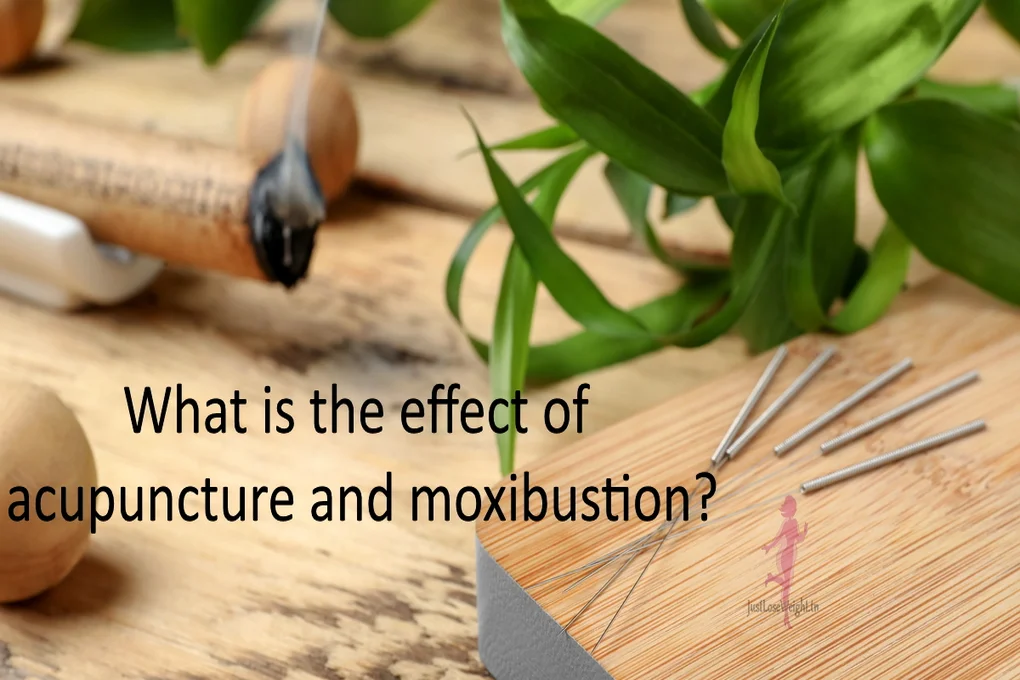
What is the cause of the pain?
The use of larger or deeper needles is more likely to cause pain. Some needle brands can also cause more pain.
Some doctors use greater force or heavier techniques when inserting the needle. It is important to use only qualified and experienced acupuncturists.
If the pain is more than a slight discomfort, talk to him or her. You can also ask your doctor to slow down, use fewer needles, place them superficially, and reduce the number of operations.
“Sometimes it’s a bad recommendation technique,” Choudhury said. “If everything hurts, you can go to another doctor.”
Other painful acupoints
Some points are more sensitive than others. If the needle hits a small nerve, muscle, or blood vessel, you may experience increased pain and sensation. If it is short-lived, a one-time sensation is acceptable.
Limb points are more likely to cause a stronger reaction in the form of dull pain or tingling. B. Claws can create a more intense sensation, such as where there is little meat.
These sensations are usually short-lived.
Choudhury explains which parts of the body hurt the most. For many, the foot is more painful because it contains many important energy points.
You can feel more sensitive in the areas that are most important to your treatment, as energy stagnation can occur.
Choudhury said doctors must be aware of and sensitive to the needs of the person being treated.
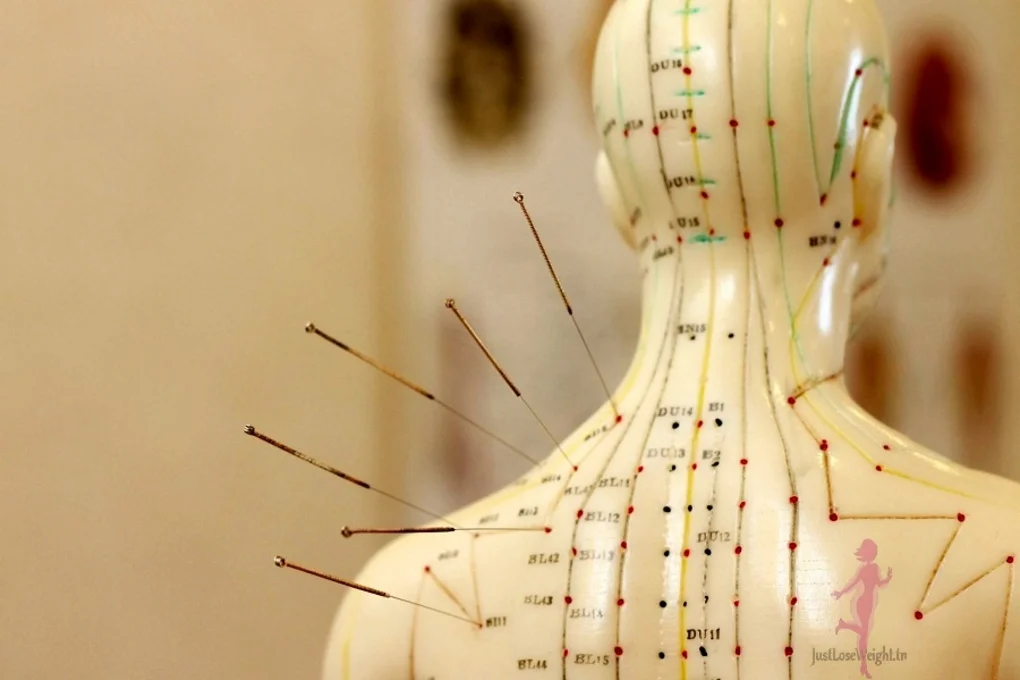
How long will the treatment take?
One acupuncture session lasts from 30 to 90 minutes.
Part of the time is spent discussing with the practitioner why acupuncture is desired.
Depending on the patient’s condition and the strength of the conversation, some sessions may take some time, especially at the time of the first appointment.
The needle is usually inserted for 10 to 30 minutes. During this time, lie down. Some people are very relaxed and fall asleep.
Pay special attention to the first 24 hours after treatment.
- You may feel calm, relaxed, or sleepy.
- Please rest and relax even if you feel well.
- Avoid intense activities.
- Eat a healthy diet that includes fruits, vegetables, and protein.
- Drink a lot of water.
- Avoid alcohol and caffeine drinks.
Do not use ice packs as they can block the flow of energy in your body. You can use hot compresses.
We recommend a massage that can enhance the effect of acupuncture and moxibustion.
The pain that occurs during treatment usually disappears as soon as the treatment is complete. Pain and symptoms may increase within a few days after treatment.
Symptoms should improve within a few weeks. Small bruises that appear after treatment usually disappear within a few days.
If you notice any unusual symptoms after treatment, contact your doctor or acupuncturist.
Some people experienced shortness of breath and pneumothorax after chest acupuncture.
Who can do acupuncture and moxibustion?
In the United States, acupuncture can also be performed by a qualified doctor and also a teacher. Education, testing, and licensing requirements vary from state to state.
Trained chiropractors are licensed to practice acupuncture and moxibustion in 34 states. In some states, chiropractors need to have a separate license to practice acupuncture and moxibustion.
“We don’t recommend this treatment to anyone who isn’t a certified acupuncturist,” says Choudhury. “Most of the accidents and bad consequences are caused by other practitioners.”

If you are interested in acupuncture treatment but are worried that it can cause pain, talk to your doctor. It should be a relatively painless experience.
Talk to your doctor before starting acupuncture.
You can discuss the desired results, this is especially important if you have a medical condition that you want to treat or if you are taking medication.
Your doctor can recommend the most appropriate acupuncturist for your specific needs.
